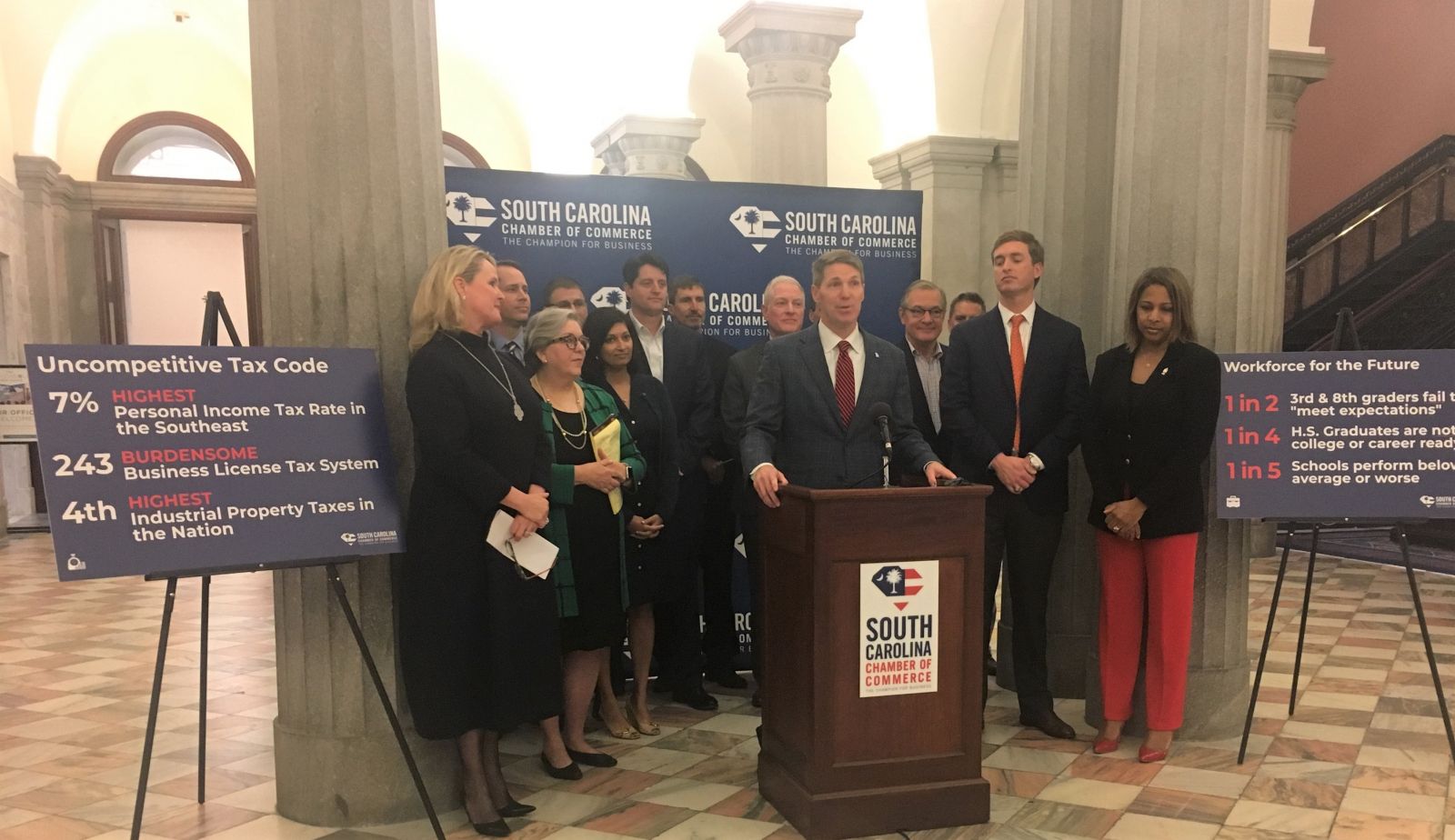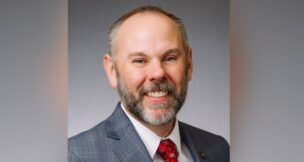Tax reform, education among chamber’s priorities
Staff //January 14, 2020//
As S.C. legislators returned to the Statehouse Jan. 14 to resume the 2019-2020 session, the S.C. Chamber of Commerce sent a reminder of the top issues the group wants addressed.
The S.C. Chamber of Commerce established tax and education reform, along with workforce development, among its 2020 competitiveness agenda priorities at a news conference at the Statehouse on Monday.
 “For several years now, we’ve called on the General Assembly to pass tax reform,” said Ted Pitts, chamber president and CEO, who said the state’s tax code needs to be brought up to contemporary standards. The chamber said the state has the seventh-highest tax rate in the Southeast and the fourth-highest industrial property taxes in the nation.
“For several years now, we’ve called on the General Assembly to pass tax reform,” said Ted Pitts, chamber president and CEO, who said the state’s tax code needs to be brought up to contemporary standards. The chamber said the state has the seventh-highest tax rate in the Southeast and the fourth-highest industrial property taxes in the nation.
Pitts said the state’s $1.8 billion budget surplus also reflects the need for tax reform, since it’s the current tax code that generated the extra revenue.
“If you’re a legislator, and think you’re going to get out of Columbia spending the $1.8 billion in extra money that you have in the budget, I remind you that this is an election year,” Pitts said. “So we’re going to call on folks around the state to encourage their legislators to reform our tax code and actually return dollars back to them that created this surplus.”
Lou Kennedy, president and CEO of Nephron Pharmaceuticals Corp., echoed the call for change.
“Tax reform would improve our climate for business development,” she said, calling tax reform “ a true catalyst for building the economy of South Carolina.”
Pitts said the current law allows for “work-arounds” that help larger companies such as Nephron, headquartered in West Columbia, or Spartanburg-based BMW to do business in the state, but the tax code shouldn’t need such provisions and should benefit all businesses of all sizes.
“It’s time to stop talking about tax reform and do something about it,” Kennedy said.
Hours after the chamber’s news conference, Gov. Henry McMaster released his 2020 budget, which also calls for tax reform. The executive budget cuts personal income taxes by $160 million in 2020 and $2.6 billion over the next five years.
McMaster also wants to return $250 million to taxpayers in the form of a rebate check, similar to what was distributed in 2019 from the winning Mega Millions ticket windfall.
The chamber also wants the state to streamline business license taxes. A business license tax reform bill currently is in the House.
“Our system is antiquated. You can’t file online. Cities have different classification methods,” said Thomas Lee Rhodes III, a Columbia small business owner and chairman of the chamber’s Small Business Committee.
Because each municipality and county has different classifications and filing dates, a business that operates in several areas can wait as many as 15 days to apply for and acquire the proper local licenses, the chamber said.
“It’s not where we should be in 2020,” Rhodes said. “ … I did most of my Christmas shopping online. You should be able to file a business license online.”
Legislators have been working on a comprehensive education reform package, but the chamber said a current bill needs to include language strengthening the state Read to Succeed program and increase accountability for underperforming schools. The bill should also support schools that use innovative and creative educational methods, the chamber said.
Although a pay raise for teachers was included in the state’s 2019 budget that increases teacher pay to regional levels, the chamber wants the education bill to include a pay raise that lifts state teacher pay to the national average.
McMaster’s 2020 budget includes an additional pay raise for teachers of $3,000, which would move the state into the top 25 nationally for average teacher pay, according a news release from the governor’s office. The increase would make the minimum starting salary for teachers $38,000.
Kennedy championed efforts to expand broadband services in the state’s rural areas, saying it’s the quickest way to provide educational opportunities for children.
P














